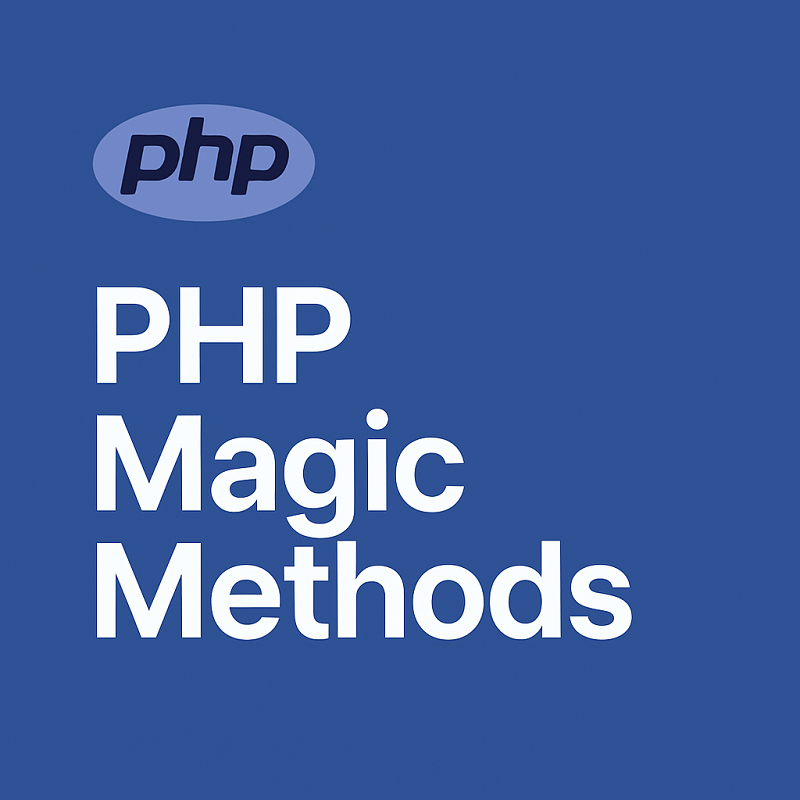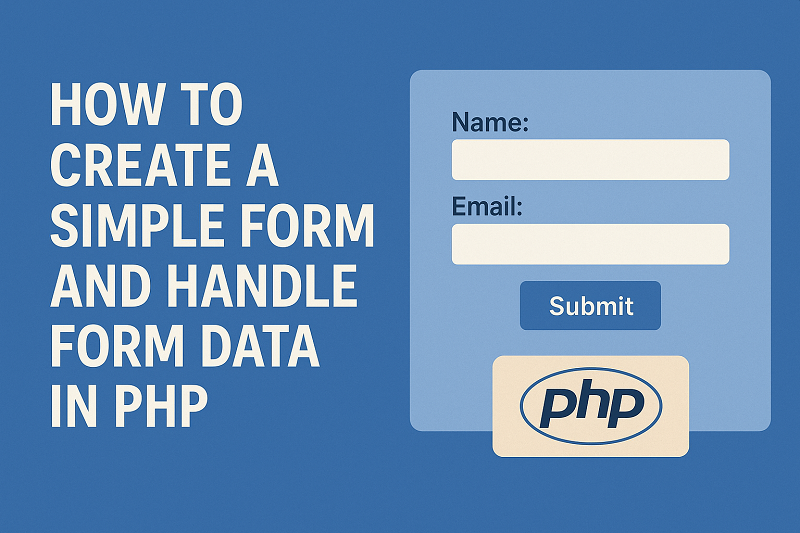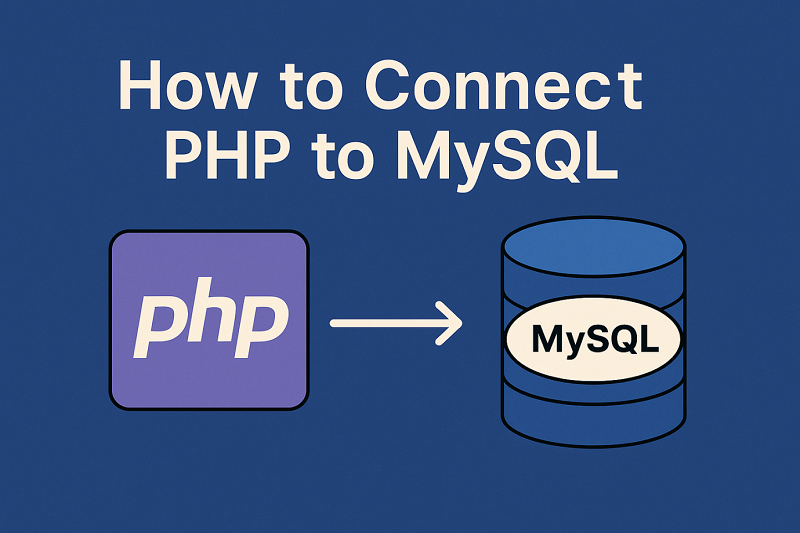PHP Magic methods are special methods that begin with double underscores (__) and are automatically triggered by specific actions within your code. These methods allow you to define powerful and dynamic behaviors in your classes. In this article, we’ll cover:…
Category: PHP
How to Create a Simple Form and Handle Form Data in PHP
PHP helps to create a simple form and handle form data. PHP allows you to collect and process form data submitted by users through HTML forms. Follow the steps below to create and handle a simple form in PHP 1.Create…
How to Connect PHP with MySQL Database
Connecting PHP with a MySQL database allows you to store, retrieve, and manage data easily for your web application. Follow the steps below to connect PHP with MySQL: 1.Create a database First, create a database using PHPMyAdmin or the MySQL…
How to Encrypt and Decrypt Data in PHP
PHP provides various methods to encrypt and decrypt data. Data encryption is an essential technique to secure sensitive information in web applications. This article will explore a simple way to encrypt and decrypt data using the OpenSSL extension. Developers are…
How to Create User Roles and Permissions in Laravel 8
When developing a Laravel 8 application, managing user roles and permissions is a critical part of any secure web platform. Whether you’re building an admin panel, a content management system (CMS), or a multi-user SaaS application, implementing proper role-based access…
How to Create a PHP Session
PHP session is a way to store data in variables that can be accessed on all webpages. Follow the steps below to create and use a session in PHP: 1. Start the Session To start a session, we use session_start()…
PHP 8 Features and How They Improve Development
PHP 8, released in November 2020, introduced many powerful new features and improvements. These advancements enhance performance, reduce code complexity, and provide modern tools for developers. Here’s a look at the key features: 1. Just-In-Time (JIT) Compilation: JIT significantly improves…
Session and Cookies in PHP: When to Use What?
Both Sessions and Cookies are used to store user data, but they differ in how and where the data is stored. When developing web applications, managing user data efficiently is crucial. Two common ways to store user-related data in PHP…
Email Notifications in Laravel
Laravel provides a powerful and convenient way to send Email notifications in Laravel via various channels, including email. This is particularly useful for alerting users about events, updates, or any other important information. In this article, we’ll walk through the…
Introduction to Laravel Eloquent ORM
Laravel Eloquent ORM (Object-Relational Mapping) is a key feature of the Laravel framework. It provides an elegant way to interact with your database. With Eloquent, each table in your database corresponds to a model, allowing you to work with data…









